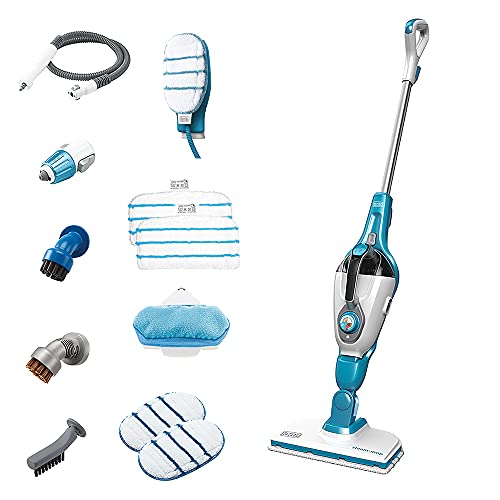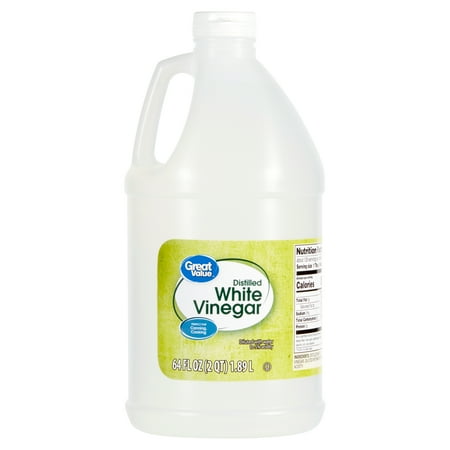
With dirty laundry piling up almost constantly – or at least it can certainly feel that way – it's no surprise that there are things around the home that you simply aren't washing enough.
From blankets to bathmats, these everyday items could be harvesting harmful bacteria and odors, and need regular washing to keep them clean and sanitary.
Here, we spoke to professional cleaners for their tips on how to do laundry to ensure a spotless space, without overlooking any items that may need your urgent attention.
8 things you aren't washing enough
Forgetting to wash these items regularly is a common laundry mistake most of us make, but it is easily rectified with some simple laundry organization hacks.
1. Blankets

How often should you wash your blankets? Well, more than you probably are currently, according to Forrest Webber, founder of Brother Bears Cleaning.
He says, 'Your beloved blanket isn't just there to keep you warm. It's a collector of your midnight snack crumbs, pet fur, and anything else that finds its way to your couch.'
Luckily, mastering how to wash a woollen blanket or how to wash a sherpa blanket isn't difficult, and Webber recommends you do so every two to three months, using a suitable detergent, such as the Woolite Delicates Hypoallergenic Liquid Laundry Detergent available at Amazon.
Webber continues, 'Use the gentle cycle with cold water and a little TLC. Want it extra fluffy? Air dry or tumble dry on low, but avoid high heat unless you want a blanket that fits a dollhouse,' as blankets are one of the items you should never wash in hot water to avoid damage.
2. Curtains

It's likely you use your curtains every single day, but when was the last time you washed them?
As Ken Doty, COO at The Maids, says, 'Curtains and drapes are a hugely important part of your home to clean and are too often forgotten. They accumulate a significant amount of dust and allergen-causing debris. We compare them to the filters for the air in your home which how much dust and pollen (in the summer months) they trap.'
So, Doty recommends vacuuming your curtains regularly with your best handheld vacuum, and giving them a proper wash or dry clean every three to six months, depending on the fabric type.
If you're unsure how to clean curtains, they're actually one of the unexpected things you can put in the washing machine – provided you check the laundry symbols to ensure you're using the correct settings for the temperature and cycle.
Doty continues, 'You can also hand wash your more delicate curtains in a bathtub or large sink with cool water and a mild detergent. Soak for 10-15 minutes before rinsing thoroughly, and be careful not to oversoak as it may cause damage to the fabric.'
After washing and caring for curtains and drapes, it's always better to opt for air-drying them, but be wary of leaving them in direct sunlight as it may fade certain colors, warns Doty.

If you can't machine wash your curtains, or they are difficult to take down, consider investing in the best steam cleaner with a handheld garment attachment. This way, you can steam your curtains to help kill bacteria, remove odors, and drop wrinkles without having to climb anything to take them down.
3. Microfiber cloths

When it comes to any household cleaning, microfiber cloths can be used for dust-busting, polishing and sanitizing in kitchens, bathrooms and bedrooms, so it's important to know how to wash a microfiber cloth to keep them both soft and absorbent.
Taylor Sutherland, president of Charlie's Soap says, 'Those nifty little cloths may be collecting by the bushel around your house. You use one to clean a mirror without streaks and toss it in the drawer, and the next gets used on countertops and tossed near the sink. Then you rotate them around and forget what you cleaned with which cloth. After a while, they are so gummed up with gunk that they stop working, and then you go and buy more.'
To avoid these common microfiber cloth mistakes, Sutherland recommends using a scent-free, zero-residue detergent such as Charlie’s Soap Laundry Powder available at Amazon, to restore your cloths to good-as-new condition.
Sutherland continues, 'You can wash them separately or with Charlie's Soap, just throw them in with a normal load,' to keep your cleaning supplies clean and ready for use whenever you need them.
4. Reusable grocery bags

Reusable grocery bags are a great way to be sustainable at home, but, constantly being taken to the shop and filled with food means they're definitely in need of a regular wash.
Cleaning expert Webber says, 'Those handy reusable bags carry everything – apples, raw chicken, wine bottles, you name it. Unfortunately, that means they're also carrying more bacteria than a petri dish at a science fair. Gross.'
As they're things you can clean in the washing machine, to get them clean Webber recommends throwing them in on a hot cycle after every few uses, with a plant-based detergent such as the Seventh Generation Concentrated Laundry Detergent available at Amazon.
For plastic-lined bags, use a disinfectant spray such as the bestselling Lysol Disinfectant Spray available at Walmart, or, if you prefer not to use chemicals, why not try cleaning with vinegar.

White vinegar can help to kill mold and remove lingering odors. It has even been shown to have some disinfectant properties, making it ideal for freshening up plastic lined reusable bags without damaging or bleaching them.
5. Pillows

You may know how to wash a pillow, but what about how often you should wash your pillows?
Cleaning expert Doty says, 'Another item that isn't washed nearly as much as it should be are your pillows. These integral sleeping items collect dead skin cells, oils from your hair, and trap sweat moisture nightly, making them a breeding ground for dust mites and bacteria.'
Therefore, according to Doty, pillows should be washed every three to six months, using a moderate water temperature, and should be paired with a pillow protector that is washed monthly, for optimal hygiene. Remember not to dry pillows on a high heat as this may cause them to shrink, and look out for any of the signs it's time to replace your pillows, as they, of course, don't last forever.
Doty advises, 'Another common mistake made is hanging onto pillows for too long. You should replace them every one to two years as, eventually, they'll become too dirty for an effective clean.'
Here at Homes & Gardens, our sleep experts have tested and determined the best pillow on the market, if it's time for an upgrade.
6. Pet beds

I have four dogs at home, so know all too well the importance of washing pet beds to banish musty odors.
Carolina Kazimierski, co-owner and president of Sophia’s Cleaning Service says, 'I think pet beds tend to slip beneath most homeowners' radar when it comes to washing, but I've found they really contribute to musty odors in the home if they're not washed frequently enough.'
Kazimierski recommends washing pet beds every month or so, or really whenever you notice them starting to smell, which will differ depending on pet type and breed. If you're not sure how to wash dog beds, our dedicated guide delves into the details, and don't forget to vacuum pet beds regularly between washes if you have a pet that sheds heavily.
According to us, the best vacuum for pet hair is the Dyson V15 Detect Plus Cordless Vacuum available at Amazon, which features a HEPA filter, two advanced cleaning heads and easily converts to a handheld vacuum for hard-to-reach areas.
7. Bathmats

If you're wondering how often you should clean a bathmat, cleaning expert Webber advises that they are probably one of the things you aren't washing enough.
He says, 'Bath mats are like a battlefield for wet feet, soap scum, and the occasional shampoo spill. Not to mention, they stay damp – perfect for cultivating your very own science experiment of mold and bacteria. Let's avoid that.'
To wash a bathmat properly, Webber explains, 'Give your bath mats a good wash every two weeks. Machine-wash on warm, and, if they have a rubber backing, air-dry to prevent it peeling off.'
Webber recommends using OxiClean White Revive Laundry Whitener and Laundry Stain Remover Powder available at Walmart for any light-colored mats, to keep them looking bright without chlorine-bleach and other strong chemicals.
8. Carpets

There are many ways to deep clean a carpet, from cleaning carpet with baking soda to steam cleaning carpet, but, as laundry expert Sutherland notes, 'Carpets usually get cleaned when you move in and when you move out, don't they?'
So, once or twice a year, Sutherland advises washing your carpet with Charlie's Soap Indoor & Outdoor Surface Cleaner available at Amazon, by putting a quarter of a cup in the reservoir of a rental shampooer with warm water.
You can also use a specifically formulated product, such as the Great Value Carpet & Rug Cleaners available at Walmart, or for an affordable option, you can even use shaving foam to clean carpets, too.
However you choose to do it, don't forget to also regularly vacuum your carpets to keep them spotless and dust-free. Don't go overboard, though, if you're not sure how often you should vacuum carpet. Once a week should suffice, but you may need to do so more often if you have pets.
As surprising as it may seem, there are in fact things you are washing too frequently. From denim to pajamas, some items may be damaged from overzealous washing, so it's best to avoid overwashing wherever possible.







